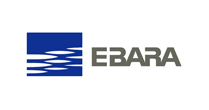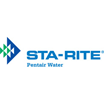
February 7th, 2024
Businesses in the industrial sector have unique processes, chemicals, and machinery. Because of this, there is a high demand for working conditions in industrial, manufacturing, and energy facilities. Industrial and energy facilities need complete fire protection from flammable materials to electrical equipment to confidently continue operations.
These facilities require specific fire protection systems, such as fire water pump systems, to suppress the potential fire hazards found within these settings. Continue reading to learn more about fire safety in industrial and energy facilities.
Fire safety systems are crucial in every industrial and energy facility to protect people and property. These systems help prevent, detect, and mitigate the impact of fire emergencies. Below are some essential fire safety systems that every industrial facility should have:
It is crucial to warn industrial workers immediately during a fire emergency. This is where a comprehensive industrial fire alarm system comes in handy to monitor, detect, and notify building occupants of a fire emergency. It will ensure a speedy evacuation during a fire hazard.
Fire alarm systems are standard in manufacturing, industrial, and energy facilities. Please make sure you regularly inspect and test them to ensure NFPA compliance.
Industrial facilities need accessible portable fire extinguishers to maintain compliance and fire safety. While accessibility is key, you must choose the right fire extinguisher for your unique environment.
Equipping an industrial facility with the correct fire extinguishers can be difficult due to the multiple types of fire hazards typically found.
Due to the various fire hazards in industrial facilities, they need a fire suppression system to ensure quick fire detection and minimize damage to property and business assets.
Businesses and industrial facilities implementing a fire sprinkler system reduce maintenance costs, maintain regulatory compliance, and protect their industrial property, workers, and expensive assets.
Well-installed and maintained fire sprinkler systems paired with the appropriate fire pumps are essential for any industrial facility. Ensure these pumps are installed, inspected, and maintained by trained fire safety technicians.
Here are some common types of fire water pump systems you can consider for an industry and energy facility:
It is the most common type of fire pump due to its economical price and high water flow applications. The pump is easily accessible for maintenance and has a longer life span than other fire pumps. Common applications may include:
Vertical split-case pumps provide high pressure for fire sprinkler systems without requiring too much power. Their motor is usually located at the top of the pump, allowing the pump to take up less space. Also, the vertical design protects the motor from potential flood damage. Common applications may include:
Vertical in-line pumps provide superior fire protection while occupying minimal space. They provide a smooth water flow throughout the system because the suction and delivery are in line with each other. They have limited applications and can only be used with an electric motor. Maintenance costs are also higher for these pumps. Common applications may include:
Vertical turbine fire pumps are centrifugal fire pumps designed to supply water from a static water source, such as an underground well. These pumps are the only type of pump that can start with negative suction water pressure. Vertical turbine pumps can meet a wide range of capacity and water pressure requirements using a diesel engine or electric motor. Common applications may include:
Industrial and energy facilities need to evaluate their fire protection preparedness to ensure they are ready for any unforeseen fire emergency in the future. This is where Callaghan Pump can help you with its high-quality fire pumps designed to support fire protection and sprinkler systems in industrial buildings.
We understand that choosing the ideal fire water pump system for an industrial and energy facility is complex as it depends on many factors, such as capacity, cost, and system layout. Thus, we will assess your facility to determine the most cost-effective installation, ensuring the fire pump you install follows the NFPA code.
To get your quote, please get in touch with us today!
john@callaghanpump.com,
eileen@callaghanpump.com,
dan@callaghanpump.com,
sales@callaghanpump.com,
service@callaghanpump.com












